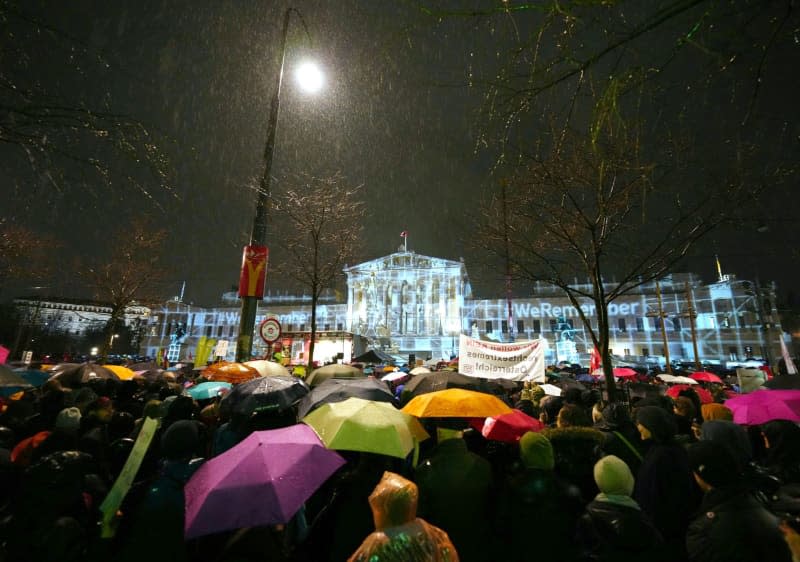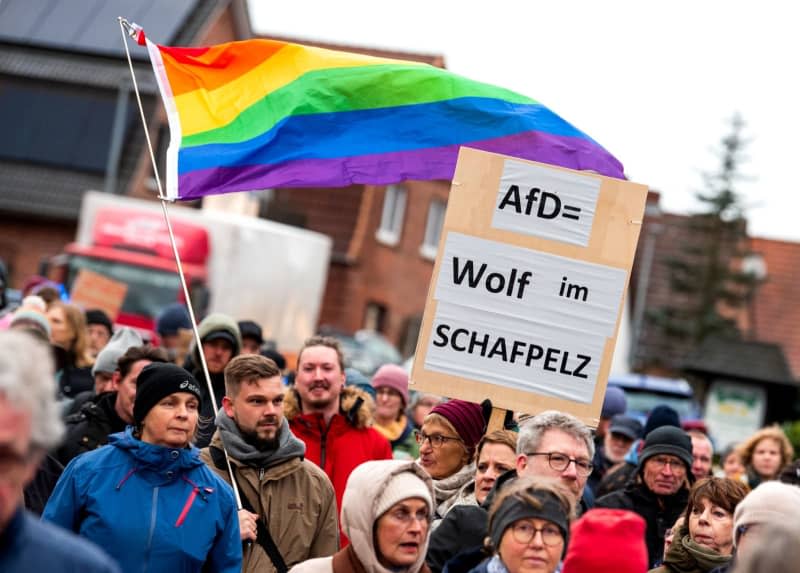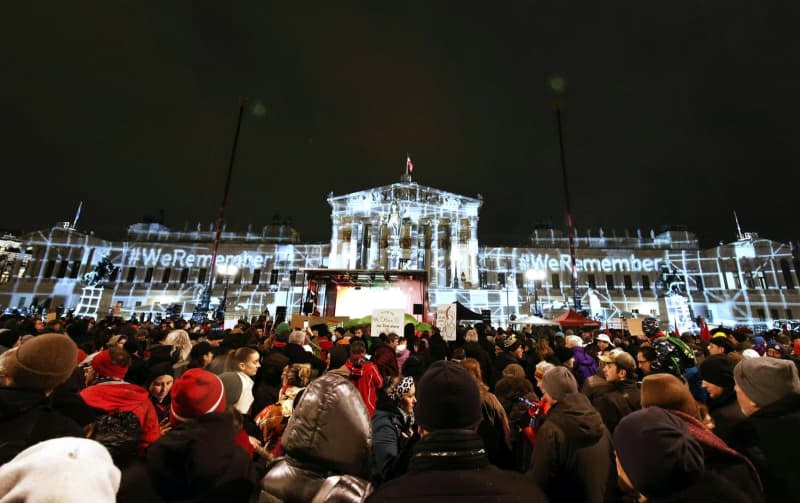Thousands to protest right-wing extremism in Germany over weekend

- Oops!Something went wrong.Please try again later.
- Oops!Something went wrong.Please try again later.
- Oops!Something went wrong.Please try again later.
German cities are expecting further large demonstrations against right-wing extremism over the weekend.
Some 30,000 marchers are expected at a demonstration against the Alternative for Germany (AfD) in Dusseldorf at noon (1100 GMT) on Saturday. Larger events are also planned in Aachen, Mannheim and Marburg, as well as in other cities.
In Osnabrück, Defence Minister Boris Pistorius plans to join marchers in the streets, while in Wittenberg, Saxony-Anhalt Premier Reiner Haseloff also plans to be among demonstrators.
There are also demonstrations planned on Sunday in Hamburg and other locations.
On Friday, thousands of people once again took to the streets in several cities to protest against right-wing extremism. Protests took place in Frankfurt, Saarbrücken, Herne and Gütersloh.
According to the Federal Ministry of the Interior, more than 900,000 people took part in demonstrations against right-wing extremism last weekend.
This Saturday's demonstrations coincide with Holocaust Remembrance Day, when numerous organizers commemorate the Jewish victims of the Nazis.
German President Frank-Walter Steinmeier expressed his support for the demonstrations, but called for further commitment to democracy.
"I am delighted and grateful that the democratic centre of society has woken up," Steinmeier told regional public broadcaster SWR. These people were proving that the vocal despisers of democracy were not in the majority, he said.
"This should make democrats self-confident and also a little proud."
However, these demonstrations could not replace political engagement, Steinmeier said when asked how the protests would continue. His plea to dissatisfied people was to get off the sofa and get actively involved in the community.
Democracy thrives on the commitment of its citizens, he said. However, Steinmeier warned that people who take on political responsibility, especially at local level, must be shown more respect again.
German Chancellor Olaf Scholz also welcomed the numerous demonstrations against right-wing extremism in recent days and weeks.
"Our country is on its feet right now. Millions of citizens are taking to the streets," he said in his weekly video. It is the cohesion of democrats that makes democracy strong, he said.
"Our democracy is not God-given. It is man-made. It is strong when we support it. And it needs us when it is under attack."
The protests were triggered by revelations from the Correctiv group of investigative journalists about a meeting in Potsdam outside Berlin of radical right-wingers on November 25, which was attended by several AfD politicians as well as individual members of the mainstream conservative opposition party, the Christian Democratic Union (CDU), and the far-right WerteUnion.
The former head of the far-right, white supremacist Identitarian Movement in Austria, Martin Sellner, said he had spoken about "remigration" at the meeting.
When right-wing extremists use the term, they usually mean that a large number of people of foreign origin should leave the country - even under duress.
According to Correctiv, Sellner named three target groups: asylum seekers, foreigners with the right to stay and "non-assimilated citizens."
New state parliaments are due to be elected in the states of Brandenburg, Saxony and Thuringia in September. According to polls, the AfD could become the strongest party in all three states, even by a considerable margin.
In two nationwide surveys conducted by the Insa and Forsa institutes for the newspaper Bild and RTL/ntv broadcasting networks at the end of the week, the AfD lost popularity but remained the second strongest force after the CDU/CSU conservative bloc.
In Saxony, Saxony-Anhalt and Thuringia, the AfD is categorized as confirmed right-wing extremist by the domestic intelligence services in those states; nationwide, it is classified as a suspected case of right-wing extremism.
Alexander Throm, spokesman on domestic affairs for the CDU/CSU parliamentary group in the lower house of parliament, the Bundestag, warned that the effect of the protests on potential voters should not be overestimated.
In his view, it is important to engage politically with the AfD and its ideas and not give extremist behaviour a chance, the CDU politician told the Rheinische Post newspaper.
"This can only succeed with a policy from the federal government that takes the concerns and needs of citizens seriously and does not continue to pour oil on the fire of frustration out of sheer ignorance."



